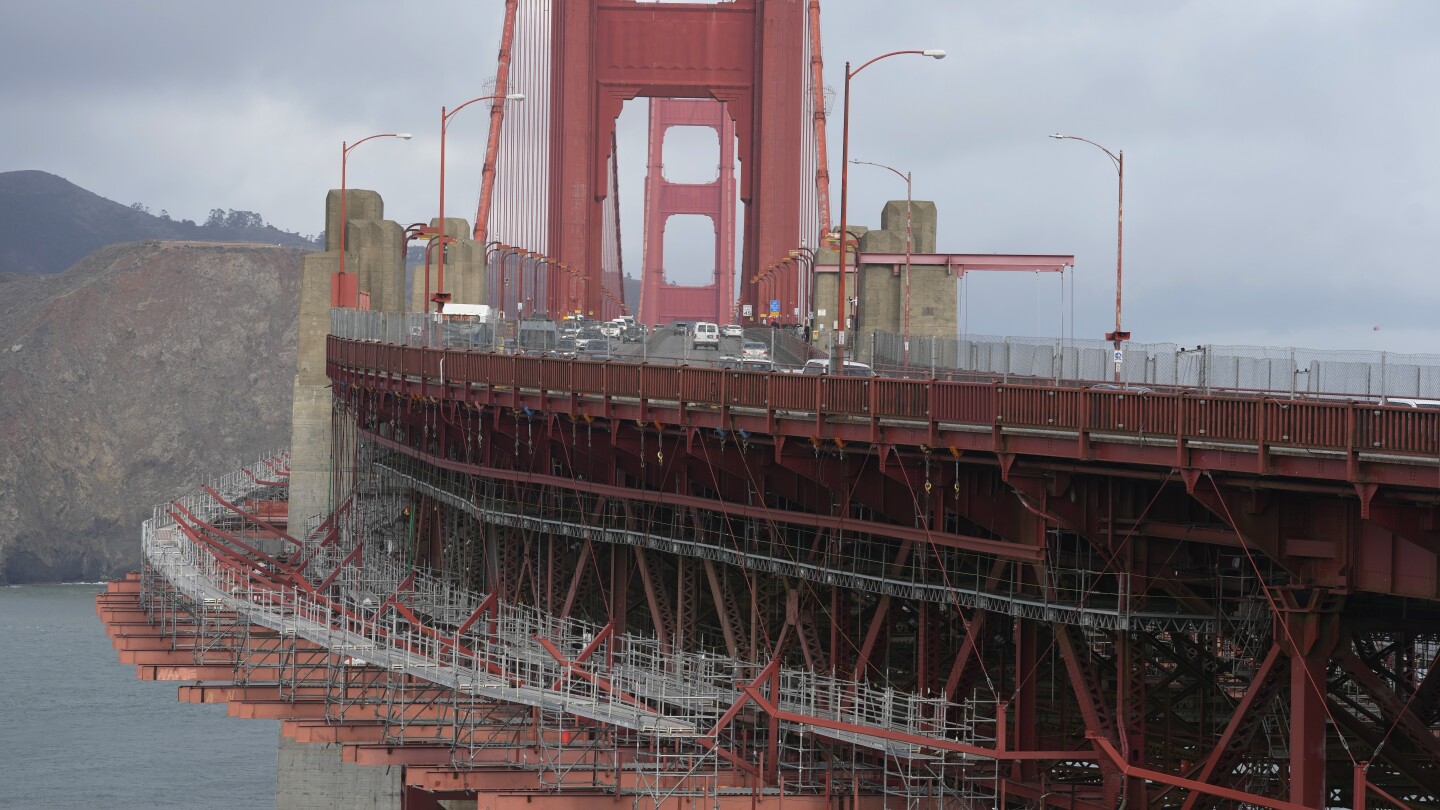Kevin Hines regretted jumping off San Francisco’s Golden Gate Bridge the moment his hands released the rail and he plunged the equivalent of 25 stories into the Pacific Ocean, breaking his back.
Hines miraculously survived his suicide attempt at age 19 in September 2000 as he struggled with bipolar disorder, one of about 40 people who survived after jumping off the bridge.
Hines, his father, and a group of parents who lost their children to suicide at the bridge relentlessly advocated for a solution for two decades, meeting resistance from people who did not want to alter the iconic landmark with its sweeping views of the Pacific Ocean and San Francisco Bay.
On Wednesday, they finally got their wish when officials announced that crews have installed stainless-steel nets on both sides of the 1.7-mile (2.7-kilometer) bridge.
“Had the net been there, I would have been stopped by the police and gotten the help I needed immediately and never broken my back, never shattered three vertebrae, and never been on this path I was on,” said Hines, now a suicide prevention advocate. “I’m so grateful that a small group of like-minded people never gave up on something so important.”
Nearly 2,000 people have plunged to their deaths since the bridge opened in 1937.
City officials approved the project more than a decade ago, and in 2018 work began on the 20-foot-wide (6-meter-wide) stainless steel mesh nets. But the efforts to complete them were repeatedly delayed until now.
The nets — placed 20 feet (6 meters) down from the bridge’s deck — are not visible from cars crossing the bridge. But pedestrians standing by the rails can see them. They were built with marine-grade stainless steel that can withstand the harsh environment that includes salt water, fog and strong winds that often envelop the striking orange structure at the mouth of the San Francisco Bay.



Might be intentional. If it was closer/less of a drop, it might just become “another handrail” where the “oh shit I don’t want to do this” doesn’t happen until after you jump off the net. By making it such a big drop, you increase the chances of that realization happening first, and if the net causes an injury, that might also stop the person from making it to the edge of the net and going over.
Basically, by making it a big drop it’s become a bigger obstacle, which could increase effectiveness.
Ok this pretty much answers my question. I think you’re right. I was thinking. What’s stopping them from jumping off the net after the jump onto it.
But ive heard of people who survive attempted suicide by jumping almost all regret it while jumping off.
deleted by creator